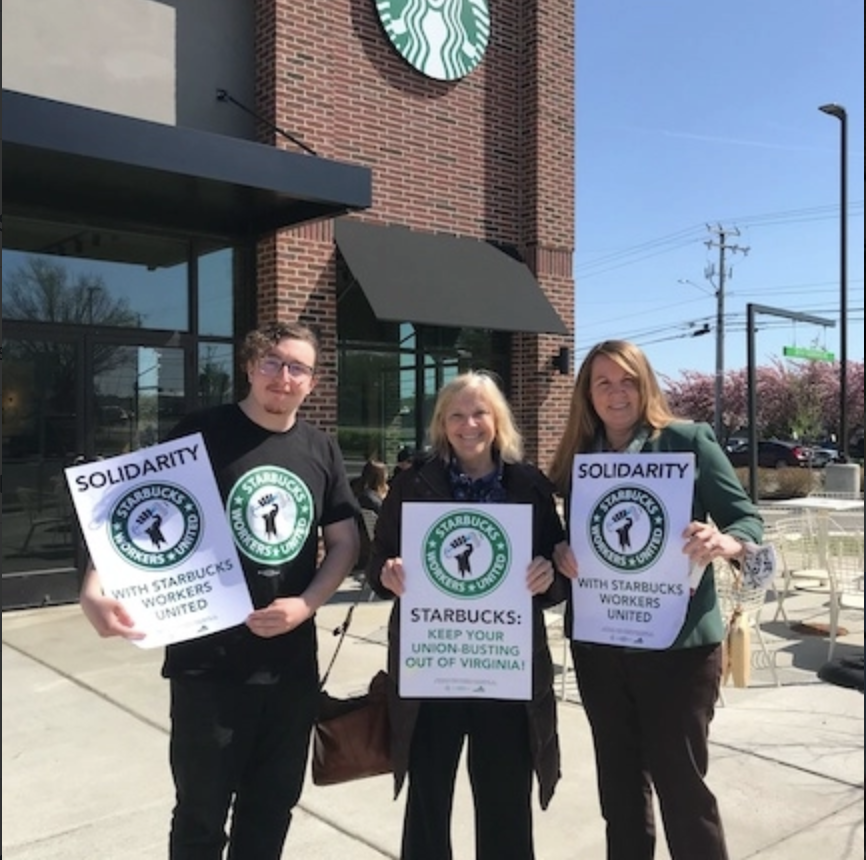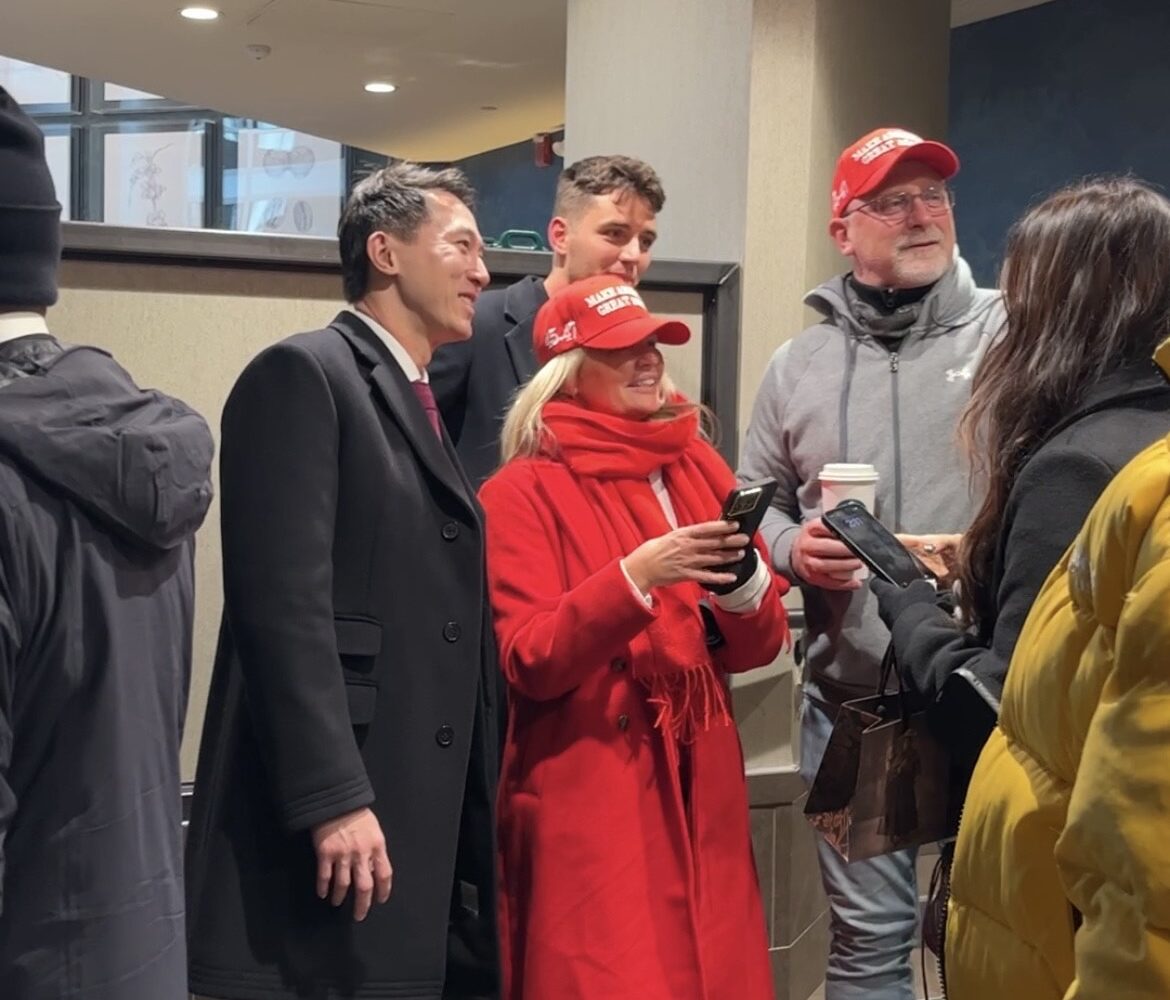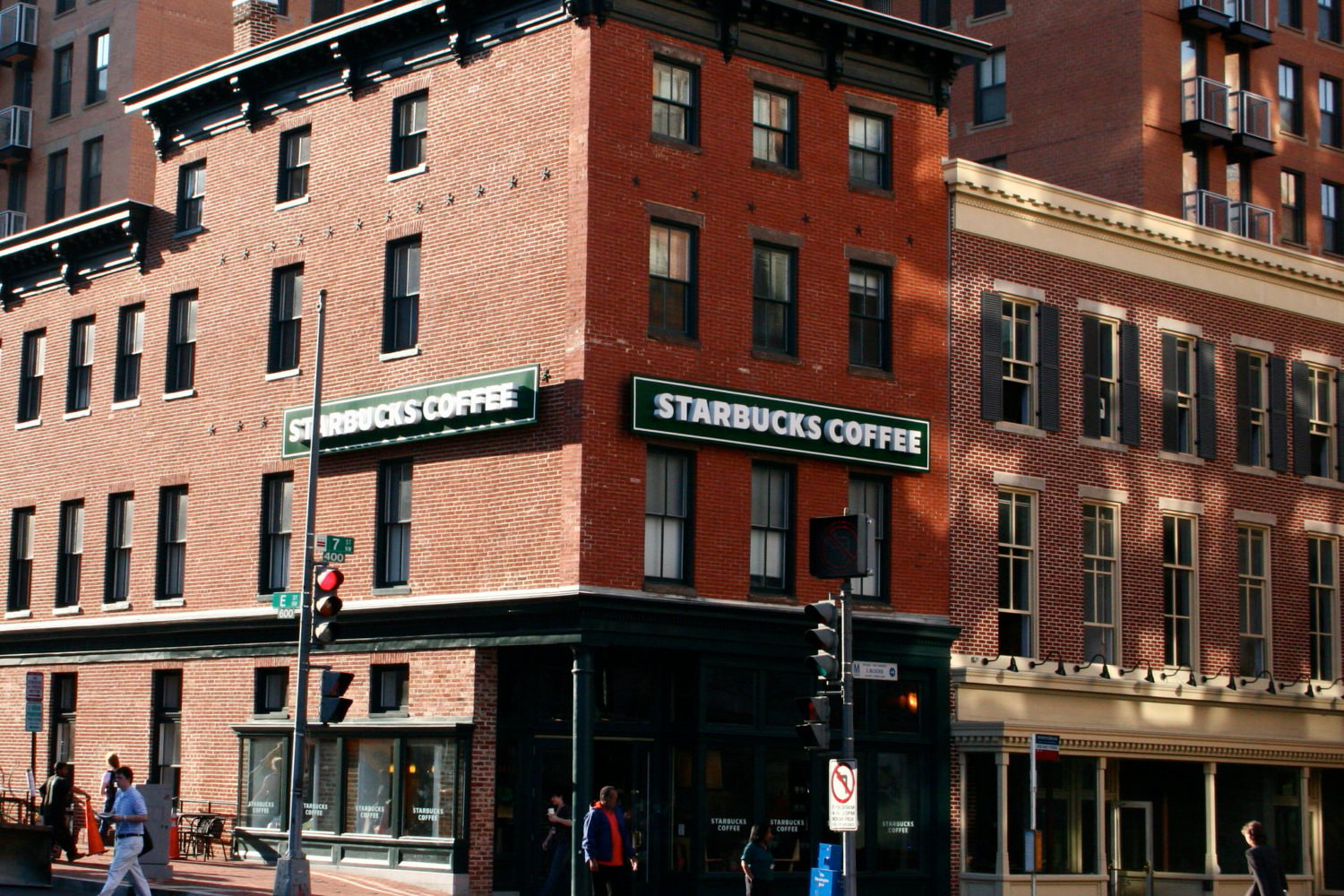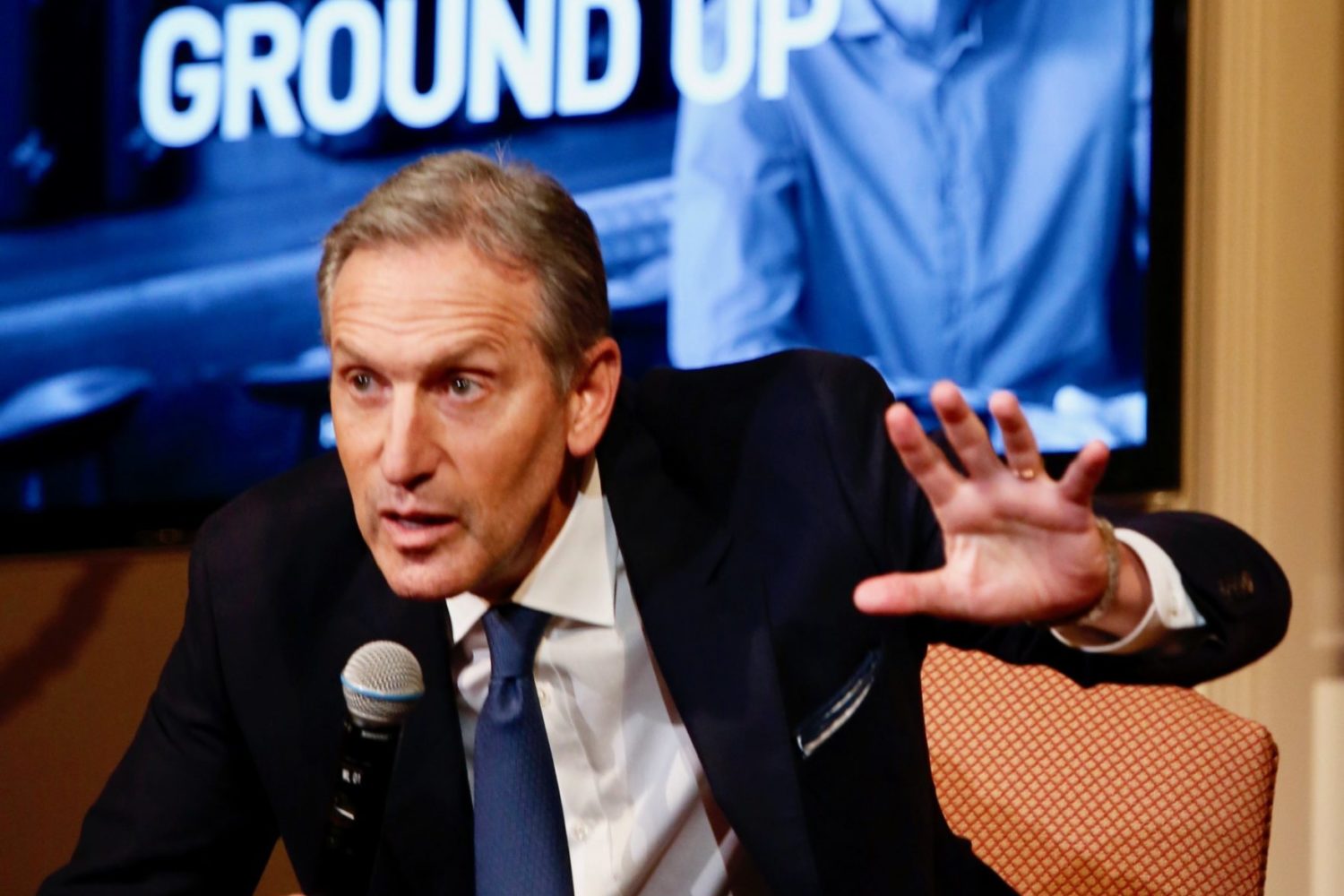On Friday, workers at the Starbucks in Merrifield, Virginia, became the first in the DC region to unionize. The very next day came a second overwhelming union win, just up the road in Leesburg. Declan Galvin, a Leesburg barista, says one of his coworkers flew home from a Florida vacation to vote yes. “We had people screaming,” he says of the election. “It was ecstatic.”
These victories are part of a rising tide at Starbucks, which has recognized unions in at least 30 American stores since December. Just last week, five Richmond Starbucks locations elected to unionize. And yesterday, a Baltimore Starbucks became a union shop, too—the first of its kind in Maryland, though there are upcoming elections at other stores. (Reached for comment, a Starbucks spokesperson said of the Leesburg store that, “We will respect the process and we will bargain in good faith guided by our principles. We hope the union does the same.” She added that, “From the beginning, we’ve been clear on our belief that we are better together as partners without a union between us, and that conviction has not changed. We respect our partners’ right to organize and are committed to following the NLRB process.”)
Declan Galvin and his co-worker, Richard Griffith, helped orchestrate the Leesburg store’s 24-1 victory. Griffith, a 20-year-old shift supervisor, has been working at the Leesburg store since 2019. Galvin, 26, has been a barista since February. We spoke with them about their experience organizing the Starbucks union and what they think is next for the region’s stores.
How did the union drive first get off the ground at the Leesburg store?
RICHARD GRIFFITH: I think it was about early-to-mid January, I was just talking to my co-workers, and we all started talking about the idea of a union, because a bunch of other stores had started to do that around that time. It started out like, “Hey, have you read what’s going on in Buffalo or in Richmond?” And it quickly became clear that, yeah, a union is something that the vast majority of people are in favor of. But at least from my perspective, it was very daunting at first, because I wasn’t super familiar with labor unions or anything like that. Declan had pretty much just started at that point, but he had a lot of knowledge that not all of us had.
Like what?
DECLAN GALVIN: So I’m actually in grad school for political science, with a focus on public policy. But I’ve always been interested in labor. That was one of the big things that I studied in my undergrad, I took a whole class on labor, and it got me interested. I also have experience of—well, I can’t prove that they fired me for wanting to start a union, but when I worked at Amazon for a year and a half, I got let go after talking to a couple of people about wanting to do a union. Then I worked on a political campaign, and then I was unemployed for a bit, and then I got into grad school and went, “Hi, I need something to help pay for that.” And that’s how I got to Starbucks. I was hearing all the news about unionization, and I actually made a joke about it during my training, like, “Oh, you’re for a union, right? I know, my rights.” I went on this whole thing, like, they can’t fire me for wanting a union. And that’s how I got involved.
What were the specific issues that you wanted the union to address?
GALVIN: Well, they cut hours, so we had less people on the floor, meaning the workers who were on the floor had to do more work. And they opened up the cafe and the mobile orders at the same time as the drive thru. So three different areas where people were ordering, but with less people working, means more stress on each worker there. You feel like you’re not performing adequately the whole time. And sometimes customers will get aggravated, and you want to help them out, but there’s about 20 drinks ahead of them, and you can’t get to them until you finish the first five in front of you.
That sounds tough.
GALVIN: Especially when people haven’t got their coffee in the morning.
GRIFFITH: Yeah, our customers would come in and they’d be like, Why are things like this? Why are there only four people at work here? And why is my drink taking, like, 20 minutes to get out? And, it’s like, well, they cut our hours. I think everyone’s pretty tired of the skeleton crew running things.
Health benefits were a part of this, too, right?
GRIFFITH: The benefits that we have, at least certain ones like healthcare, they cap out. So you have to work a minimum of 20 hours in order to be eligible for those. And there were people who got hired and signed up under the impression that they were going to be working at least that amount, but they were cut underneath that, so they were no longer eligible for healthcare. And that was obviously a very big issue.
GALVIN: Yeah, that just isn’t right. A lot of people are working at Starbucks so that they can have medical care for themselves and their family. And, I mean, Loudoun County is expensive. It’s near impossible to afford a place on your own here with just the amount you make at Starbucks. So we wanted people to be able to not just survive, but also to do well. Starbucks can afford it.
Is there anything else you’re hoping to achieve in your contract?
GRIFFITH: I’m hoping for some autonomy in the workplace. Because, you know, in a lot of these food-service jobs, corporate says to do something and you’re just like, okay, this is what I’ve got to do, I have no say in anything. So I’m hoping that with the contract negotiation, we can get some autonomy.
GALVIN: Yeah, the autonomy I think will be fantastic. And not just for us, but for our manager, because there have been several times where she set up the schedule, it’s all working fine, and then corporate decides to change something, and it’s out of her control. She has to pretty much work overtime to fit their demands, even though she knows what’s best for the floor.
In organizing your co-workers, what kinds of concerns or fears did they have?
GRIFFITH: Well, no one who was like, “No, I definitely don’t want that.” One or two people were pretty much indifferent, and there were a fair amount of people who were just concerned, like, can I get fired for this?
GALVIN: Yeah, I didn’t see anyone who was anti-union, the most I saw was people who were concerned about it. And mostly all it took was, like, “No, here’s the actual law”—you know, correcting misinformation about it.
What were those organizing conversations like?
GRIFFITH: Up to that point, not a lot of us talked about, like, what we get paid, or what our problems are with this place. Just talking about things that we wanted to work on and seeing that you’re not alone in the things that you think could be better was really nice.
After you announced your intent to unionize, what was the community reaction like? Were customers saying anything about it?
GALVIN: They were supportive. We had a lot of people come by, and say, like, “Oh, my name is ‘Union Yes’ or ‘Union Strong.’”
Oh, so you’d write it on their drinks?
GALVIN: Yeah.
GRIFFITH: I never had a single customer come in and be like, “Oh, you shouldn’t do this.” But I had a ton of people who came in and said, “I heard about that. I hope it goes well. I will support you.” Starbucks has a lot of regular customers, we have a lot of people who come in every single day that we get to know, and just talking to them about it and having them support us, that meant a lot to us.
To what extent were you collaborating with the Springfield and Merrifield stores, which were also organizing union drives at the same time?
GALVIN: We’d be on weekly Zoom calls with them. I wasn’t in contact with them myself too much, but we did talk shop with them, and, you know, try and see what was going on and what might happen in our store based on what’s happened in their store, or what are some ways we can try and reassure people about the union.
The Springfield store lost their election right before yours. Do you have a sense of why you won?
GALVIN: I think the fact that we were informed on what our rights were as workers, what our protections were.
Like what?
GALVIN: Well, you just explain that they can’t retaliate against you, it’s against the 1974 Fair Labor Standards Act. Your ballot is secret, no one knows which way you voted. Also that you can say no to these one-on-one meetings if you don’t feel comfortable with it, and they can’t tell you that you can’t transfer to other stores just because you’re working at a unionized store. Explaining how the union dues work was helpful, because that was something that some people were worried about, like, oh, how much will I pay in? And you also explain that the union won’t negotiate down your benefits, they’ll only negotiate up. It was nice to be able to say, “Here are your rights. Stand up for them.”
Have you heard from other stores since the vote? Do you think this will move more locations to unionize?
GRIFFITH: I’m hoping so. I was at a Starbucks the other day in our area. I went through the drive-thru on my day off, and I had, like, posters and flyers and signs in the back of my car, and they saw it, and they’re like, “Hey, I see that!” I don’t necessarily want to just walk into another store and be like, “Hey, you should do what we did.” But definitely, I’m hoping that other stores in our area start to do the same thing.
Are you already feeling changes in your store, even before you’ve negotiated a contract?
GALVIN: Yeah, people feel more tightly connected. You also feel more seen and like your work means more.
GRIFFITH: Yeah, I definitely feel that way. You know, in food service, a lot of times you just feel like you have to do whatever you’re asked to, and you don’t feel like you have a lot of say in what goes on in your work environment. You feel like things just kind of happen. But I definitely feel like people have a sense now of, if there’s something going on at work—at this place where I spend a considerable amount of my time—then I can change it. If I think something’s wrong, then I can do something about it. And I think that’s a really good thing.


















